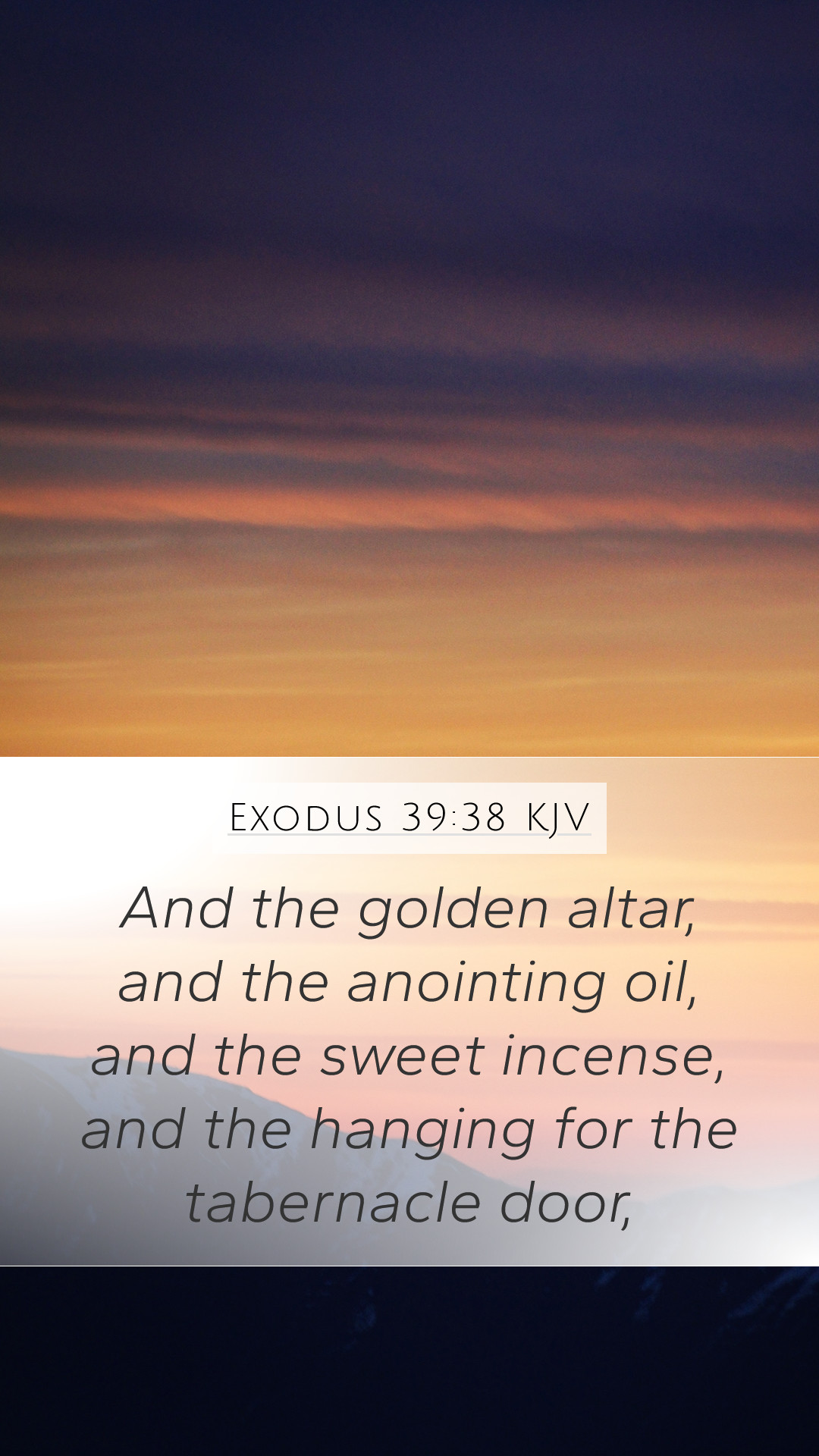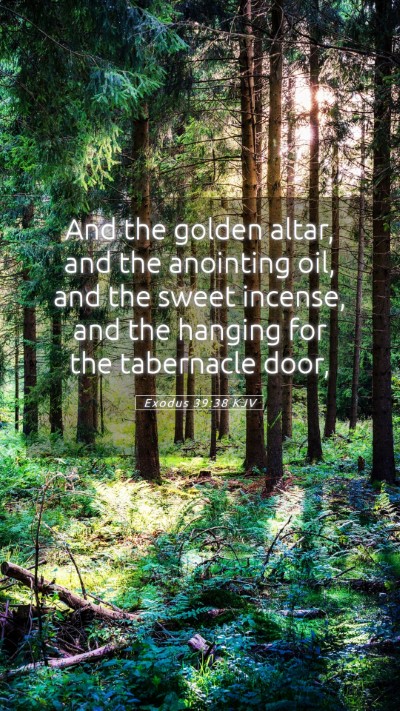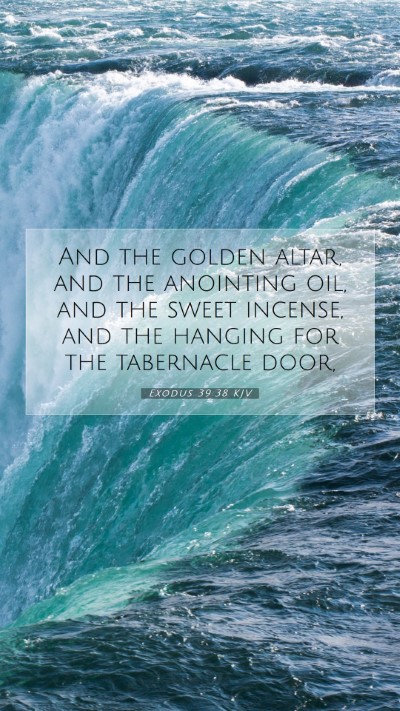Understanding Exodus 39:38
The verse Exodus 39:38 states: "The golden altar, and the anointing oil, and the sweet incense, and the hanging for the tabernacle door, and the court of the tabernacle, and the court of the door, and the cords of the court, are all according to the commandments of the Lord." This passage is located in the context of the construction of the Tabernacle, which God instructed Moses to build as a place of worship for the Israelites during their journey in the wilderness.
Bible Verse Meanings
This verse encapsulates the specific instructions given for the contents of the Tabernacle and emphasizes the importance of obedience to God's commands. The meticulous nature of the construction details offers insights into the holiness required in worship and the significance of the Tabernacle in relation to God's presence among His people.
Bible Verse Interpretations
According to Matthew Henry, the construction of the Tabernacle was not just a physical act but a spiritual necessity for the Israelites, reflecting their need to worship and commune with God. Each item mentioned, from the golden altar to the tabernacle hangings, held symbolic meaning and functioned within the larger context of sacrificial worship.
Albert Barnes' Insights
Albert Barnes emphasizes the specific mention of the materials used, highlighting their significance. The golden altar, for instance, is viewed as a representation of the prayers and worship that ascend to God, while the anointing oil serves as a mark of sanctification, indicating that these spaces and instruments are set apart for divine purposes.
Adam Clarke's Commentary
Adam Clarke provides a deeper examination of the items listed in the verse, explaining that they are not merely accessories to the worship, but integral parts of the covenant relationship between God and Israel. The systematic arrangement of these items suggests an orderliness that reflects God's character, where worship must adhere to divine standards.
Biblical Exegesis and Scripture Analysis
In a broader exegetical context, Exodus 39:38 serves as a conclusion of the detailed instructions for building the Tabernacle. It acts as a reminder that every aspect of worship must align with God's prescribed ways. The emphasis on obedience to the commandments reinforces the thematic element of covenant fidelity that runs throughout the Book of Exodus.
Connections to Other Scripture
Exodus 39:38 resonates with several key passages across the Bible:
- Exodus 25:8-9: God instructs Moses to build the Tabernacle as a dwelling place among His people.
- Leviticus 16:2: Instructions regarding the Day of Atonement highlight the importance of the altar and sacrifices.
- Hebrews 9:1-5: New Testament reflections on the Tabernacle and its significance for understanding Christ’s priesthood.
Application of Bible Verses to Daily Life
Understanding this verse extends beyond historical context to personal application. Believers are reminded of the importance of worship in their lives and the need to approach God with reverence and adherence to His word. The careful construction of the Tabernacle can inspire modern worship to be intentional, meaningful, and God-centered.
Conclusion
Exodus 39:38 is a rich verse that not only highlights the importance of following divine instruction but sets a precedent for how believers engage in worship. As seen through commentaries from notable scholars like Matthew Henry, Albert Barnes, and Adam Clarke, the verse offers insight into the significance of obedience, the symbolism of worship structures, and the historical context of Israel’s relationship with God. For those engaged in Bible study groups or seeking online Bible study resources, this verse exemplifies key themes in Bible study insights and invites deeper reflection on the meaning of sacred spaces and their relevance today.
Overall, the meaning of Bible verses like Exodus 39:38 invites believers to explore the richness of Scripture and apply its teachings meaningfully in their own lives.


